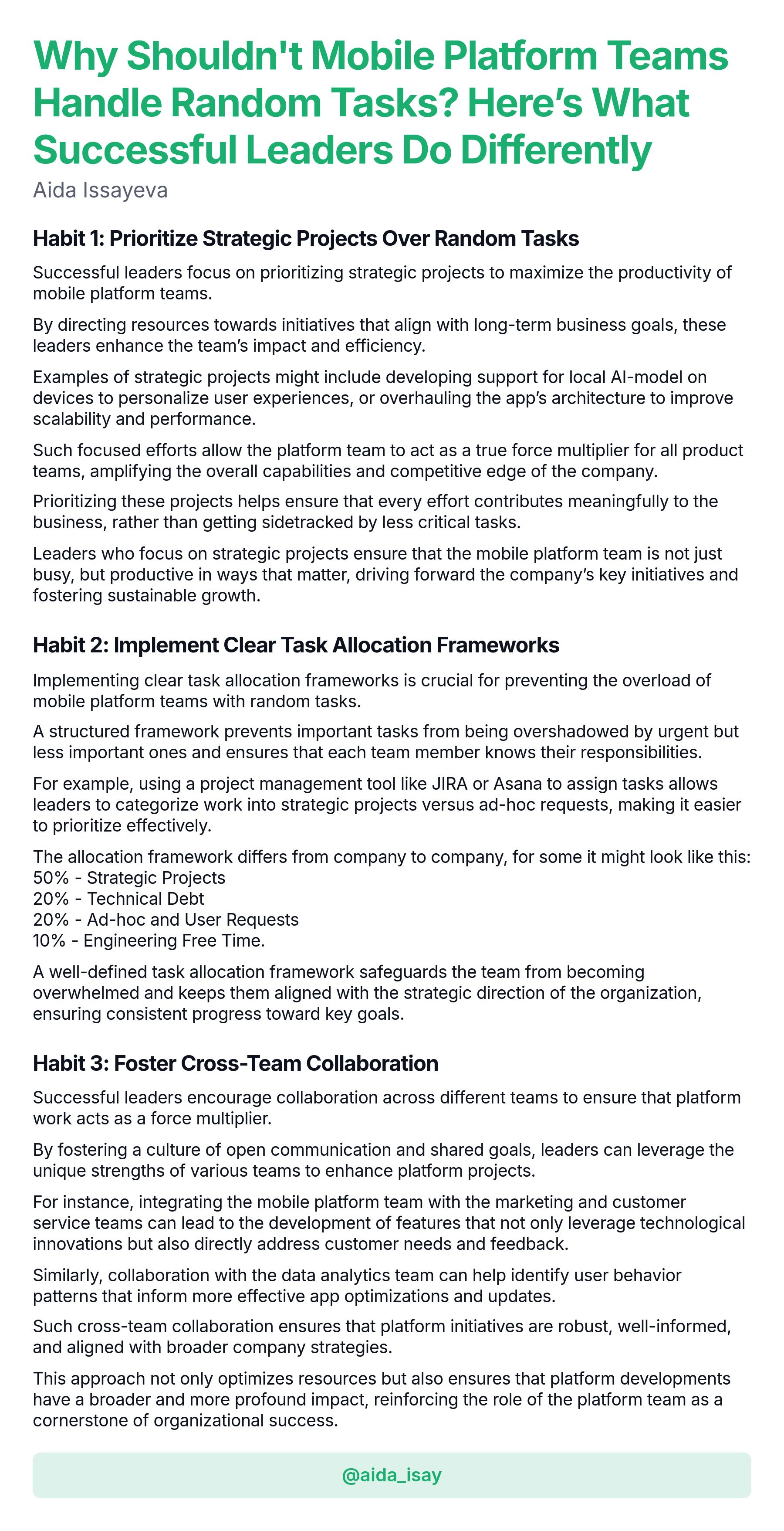Habit 1: Prioritize Strategic Projects Over Random Tasks
Successful leaders focus on prioritizing strategic projects to maximize the productivity of mobile platform teams.
By directing resources towards initiatives that align with long-term business goals, these leaders enhance the team’s impact and efficiency.
Examples of strategic projects might include developing support for local AI-model on devices to personalize user experiences, or overhauling the app’s architecture to improve scalability and performance.
Such focused efforts allow the platform team to act as a true force multiplier for all product teams, amplifying the overall capabilities and competitive edge of the company.
Prioritizing these projects helps ensure that every effort contributes meaningfully to the business, rather than getting sidetracked by less critical tasks.
Leaders who focus on strategic projects ensure that the mobile platform team is not just busy, but productive in ways that matter, driving forward the company’s key initiatives and fostering sustainable growth.
Habit 2: Implement Clear Task Allocation Frameworks
Implementing clear task allocation frameworks is crucial for preventing the overload of mobile platform teams with random tasks.
A structured framework prevents important tasks from being overshadowed by urgent but less important ones and ensures that each team member knows their responsibilities.
For example, using a project management tool like JIRA or Asana to assign tasks allows leaders to categorize work into strategic projects versus ad-hoc requests, making it easier to prioritize effectively.
The allocation framework differs from company to company, for some it might look like this:
50% - Strategic Projects
20% - Technical Debt
20% - Ad-hoc and User Requests
10% - Engineering Free Time.
A well-defined task allocation framework safeguards the team from becoming overwhelmed and keeps them aligned with the strategic direction of the organization, ensuring consistent progress toward key goals.
Habit 3: Foster Cross-Team Collaboration
Successful leaders encourage collaboration across different teams to ensure that platform work acts as a force multiplier.
By fostering a culture of open communication and shared goals, leaders can leverage the unique strengths of various teams to enhance platform projects.
For instance, integrating the mobile platform team with the marketing and customer service teams can lead to the development of features that not only leverage technological innovations but also directly address customer needs and feedback.
Similarly, collaboration with the data analytics team can help identify user behavior patterns that inform more effective app optimizations and updates.
Such cross-team collaboration ensures that platform initiatives are robust, well-informed, and aligned with broader company strategies.
This approach not only optimizes resources but also ensures that platform developments have a broader and more profound impact, reinforcing the role of the platform team as a cornerstone of organizational success.
